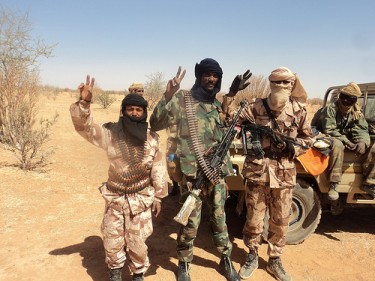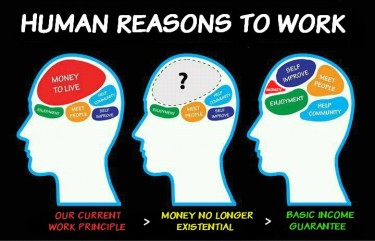2012 is over, and for Francophone countries a more serene 2013 would be more than welcome.
The year 2012 was marked by armed conflicts in Mali, in the Democratic Republic of Congo (DRC) and in the Central African Republic (CAR). There were elections in Senegal, as well as in Quebec and France. Demonstrations for change took place in Chad as well as Madagascar and Togo. Debate raged on topics such as immigration, the economic crisis and equal marriage rights. All this took place against a backdrop of major changes in the ways of sharing information.
In the first part of our 2012 review, we recap what was an eventful year in Francophone countries with the help of Global Voices contributors:
The future of Mali (by Marc-André Boisvert)
A long chain of events completely devastated the country in 2012 as a Tuareg rebellion was followed by a military coup and the fall of North Mali, which was subsequently captured by Islamist groups. There have been endless political military shake-ups: during this one year, Mali's well-polished international image as a model of democracy and development has been completely shattered, leaving the country destabilised, broken and neglected.
A year ago in Mali tweets, facebook posts and blogs were mainly personal. At the start of 2012 the only political content was from candidates honing their campaign strategies for the presidential elections (subsequently cancelled) expected to take place that April.
During 2012 Malians took over social networks. More effective than the mainstream media, internet users shared images of amputations committed by Islamists under the hashtag #Mali and exchanged views on the new powers, notably on messaging list Malilink.
The Northern Citizens Collective (COREN) and the Cri de Cœur collective mobilised Malians and their allies to send humanitarian aid to occupied regions. Social networks were no longer simply a tool for sharing people's impotence faced with the atrocities occurring, rather, they were used to organise people, to rise up and refuse to accept the situation.
The people of Mali weren't just waiting around for outside intervention – the internet is proof of that.
Passing crisis of transformation of society?
The economic crisis was the central theme of the 2012 French election. After nearly four years of the crisis the question was, rather that it being a temporary crisis, were we witnessing a structural transformation of society and the way it functions?
Innovative ideas emerged on the possible ways society could evolve with regard to the current economic context. Stanislas Jourdan enlightened us with ideas exchanged on various approaches which could transform the existing paradigms. The direct democracy team initiative for a guaranteed basic income in Switzerland was part of this:
L'initiative populaire « pour un revenu de base inconditionnel » propose d'inscrire dans la constitution fédérale « l'instauration d'une allocation universelle versée sans conditions » devant «permettre à l'ensemble de la population de mener une existence digne et de participer à la vie publique ». La loi réglerait le financement et fixerait le montant de cette allocation. Le revenu de base est inconditionnel : il n'est subordonné à aucune contre-prestation. [..] Comment le financer? Par l'impôt direct sur le revenu et la fortune, par l'impôt indirect sur la consommation (la TVA), par un impôt sur les transactions financières, et surtout par le transfert des ressources consacrées au financement de l'AVS, de l'AI, de l'aide sociale et des autres revenus de substitution inférieurs au montant du revenu de base.
The Occupy Movement was started in North America, and among other aims, worked to remove debt from families and students by crowdfunding, similar to the way that governments aided the banks during the subprime mortgage crisis:
[It] would create fiat money in the same way as with Quantitative Easing, but would direct that money to the bank accounts of the public with the requirement that the first use of this money would be to reduce debt. Debtors whose debt exceeded their injection would have their debt reduced but not eliminated, while at the other extreme, recipients with no debt would receive a cash injection…
Rebels without a cause?
Whether the M23 rebels in the DRC, the Seleka Coalition in the Central African Republic or Islamist groups in Mali, groups rarely claim a clear political ideology or uniformity of operation between their various factions. These armed groups have strongly expanded their spheres of influence in 2012, establishing a definite lever for negotiations in the stabilisation process in their respective regions. As noted by Julie Owono, the timing of the progression of attacks in the CAR suggests that financial stakes have changed the deal regarding short-term objectives of the Seleka rebels. In the DRC, Anna Gueye detailed the complex historical context of the M23 rebellion and its recent evolution. The financial stakes in the Kivu and Katanga regions are extremely high. The tragic new feature in 2012 was the expansion of the conflict and the humanitarian disaster to areas with high potential for intensification of the violence. The remarkable initiatives of the civilian population did much to protect the health and the social cohesion of populations weakened by these conflicts.
The second part of this 2012 review of Francophone countries will follow shortly.
Anna Gueye, Julie Owono, Abdoulaye Bah, Marc-André Boisvert and Stanislas Jourdan contributed to this post.









2 comments